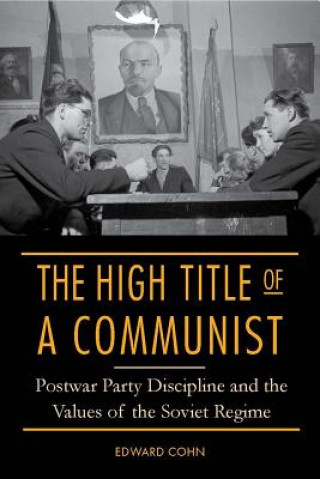
Livrare
Consilier de cumpărături





Nu se pretează? Nu contează! La noi puteți returna bunurile în 30 de zile
 Voucher cadou
orice valoare
Voucher cadou
orice valoare
Cu un voucher cadou nu veți da greș. În schimbul voucherului, destinatarul își poate alege orice din oferta noastră.
High Title of a Communist
 engleză
engleză
 167 b
167 b
30 de zile pentru retur bunuri
Ar putea de asemenea, să te intereseze


Between 1945 and 1964, six to seven million members of the Communist Party of the Soviet Union were investigated and reprimanded, demoted from full party membership, or expelled. These discipline hearings were a form of "moral education," and accused communists were subjected to humiliations in front of their friends and coworkers over the course of months or even years. As the regime grappled with a postwar economic crisis and evolved from a revolutionary prewar government into a more bureaucratic postwar state, the Communist Party revised its informal behavioral code, shifting from a more limited and literal set of rules about a party member's role in the economy to a more activist vision that encompassed all spheres of life: consequently, Soviet power became less repressive and more intrusive. Cohn uses previously untapped archival sources to offer this first study of the Communist Party's internal disciplinary system in the decades following World War II. He uses the practices of expulsion and censure as a window into how the postwar regime defined the ideal Communist and the ideal Soviet citizen. In the end, the party failed in its efforts to enforce a clear set of behavioral standards-a failure that would prove central to the Soviet Union's ultimate decline.
Informații despre carte
 engleză
engleză
Categorii




 Cum să cumpăr
Cum să cumpăr























